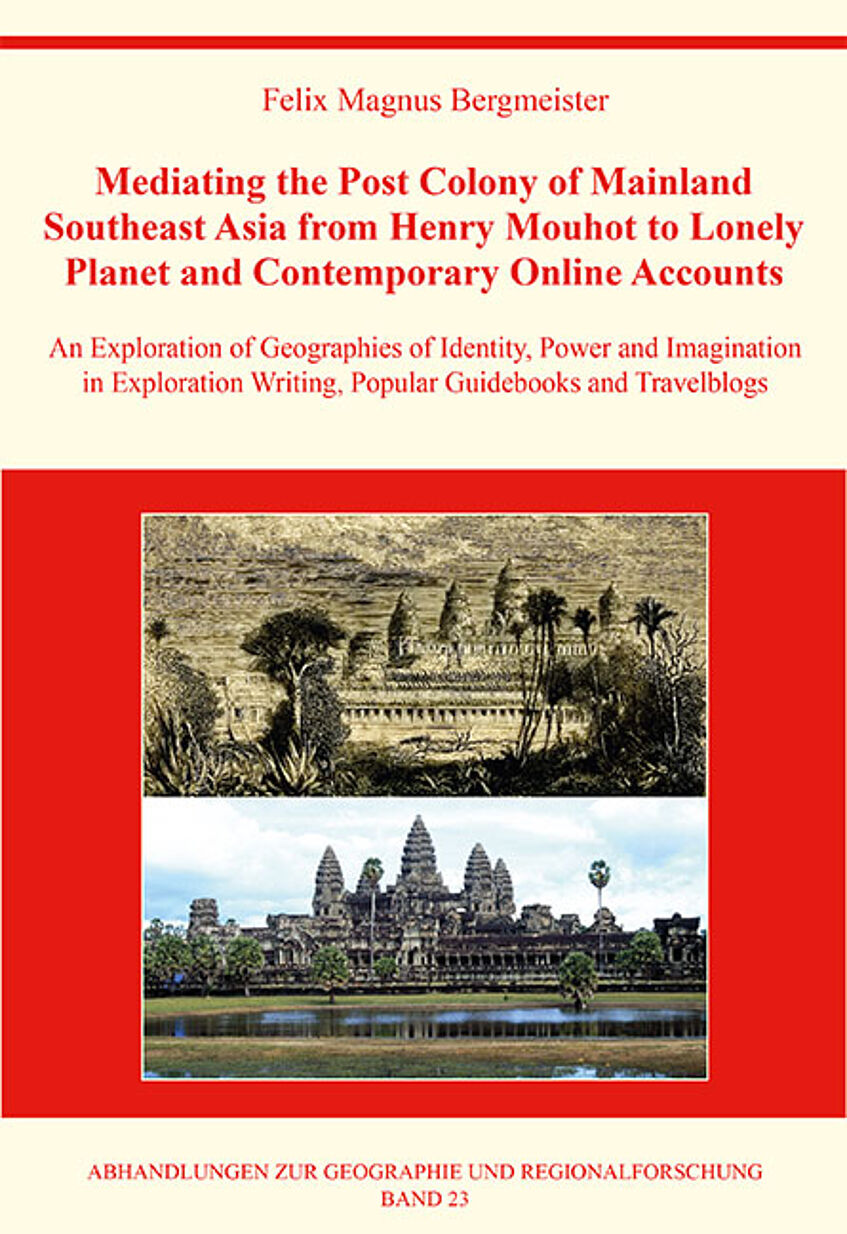ABHANDLUNGEN ZUR GEOGRAPHIE UND REGIONALFORSCHUNG • BAND 23

ISBN: 978-3-900830-90-8
Bestellung:
Tel. +43 / 1 / 4277 48603
E-mail: geographie@univie.ac.at
Preis:
EUR 30,- (für Studierende: EUR 25,–)
Felix M. Bergmeister
Mediating the Post Colony of Mainland Southeast Asia from Henry Mouhot to Lonely Planet and Contemporary Online Accounts
An Exploration of Geographies of Identity, Power and Imagination in Exploration Writing, Popular Guidebooks and Travelblogs
Wien 2021, 252 Seiten
This work traces the discursive construction of mainland Southeast Asia over the past two centuries in exploration writing, (historical) tourism guidebooks and travel blogs. To account for the historic specificity of post-colonial Southeast Asia, two early 20th century guidebooks (Murray 1904; Harrison 1920) and Henri Mouhot’s (1864) seminal exploration account Travels in the Central Parts of Indo-China (Siam), Cambodia, and Laos During the Years 1858, 1859, and 1860 form the basis of this study. All three texts mirror historic key events of the exploitation of the region. While Henri Mouhot’s (1864) report of discovery firmly attached Eurocentric discourse to the new Eastern end of the colonial world, the two early 20th century handbooks illustrate how the imperial tourist gaze appropriated the countries under survey.
Subsequently, the discursive background of the region is related to contemporary tourism texts. By considering Lonely Planet’s comprehensive bestseller Southeast Asia on a Shoestring (2014) vis-à-vis independent travel blogs from the website travelblog.org, the book explores how popular travel destinations in mainland Southeast Asia are represented in terms of difference and otherness to gain a better understanding of the (re)configuration of power relations in a post-colonial setting. Critical Discourse Analysis is employed to scrutinize different texts from different genres and times to trace possible instances of discursive transformation and convergence (e.g. how do discourses change over time, how do they translate to different tourist practices and how are they negotiated in guidebooks and blogs). Results suggest that modern tourism discourse still draws on problematic 19th century binaries (e.g. civilized / uncivilized; modern / timeless) and re-appropriates them in the form of distinct tourism narratives to promote cultural, hedonist or action-oriented tourist activities.
